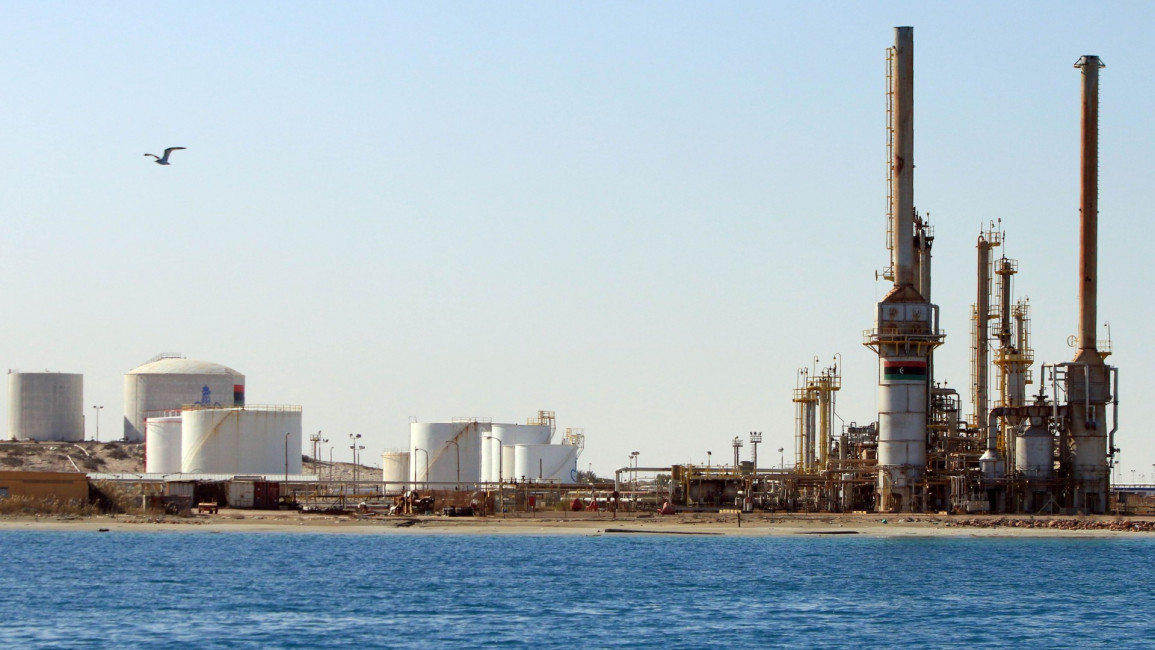Oil production resumes in Libya after months-long shutdown
The Libyan National Oil Company announced Friday the resumption of oil production and exports after a nearly six-month shutdown due to conflict dividing the country.
"The NOC has lifted force majeure on all oil exports from Libya," the company said in a statement, adding that production will take time to return to previous levels.
"The increase in production will take a long time due to the significant damage to reservoirs and infrastructure caused by the illegal blockade imposed on January 17," the statement said.
Libya, which has the biggest proven reserves of crude in Africa, is torn between the rival powers of the UN-recognised Government of National Accord (GNA) based in Tripoli and rogue General Khalifa Haftar, who rules over the east and part of the south.
Since January, groups loyal to Haftar, who was pushing an offensive to seize the capital, have been blocking the production and export of oil from the country's most important fields and terminals, claiming they want a fair distribution of the oil revenues managed by Tripoli.
The NOC had invoked force majeure in response - a measure used in exceptional circumstances that allows the NOC to be exonerated from liability in the event of non-compliance with oil delivery contracts.
NOC chief Mustafa Sanalla welcomed the resumption of oil production, saying: "We are very glad finally to be able to take this important step to national recovery," according to the statement.
A first ship was due to start loading crude from the oil port Al-Sidra in the east of the country, the statement added.
|
||
Negotiations
Libya produced 1.22 million barrels per day before January and had planned to increase production to 2.1 million bpd by 2024, the NOC said this week.
But due to infrastructure damage caused by the months-long blockade, production could drop to 650,000 bpd in 2022, it said.
Earlier this month, the NOC had reported talks, "supervised by the United Nations and the United States", to allow the resumption of production, the halt of which caused losses of more than $6.5 billion, according to the company.
Oil exports are the source of almost all state revenue in Libya, which has been mired in chaos since the ouster and killing of dictator Muammar Gaddafi in a 2011 NATO-backed uprising.
Supported by Turkey, pro-GNA forces scored important victories in June, regaining control of the northwest and driving out forces loyal to Haftar, who had launched an offensive to seize Tripoli in April 2019.
Haftar is backed by Egypt, the United Arab Emirates and Russia.
On July 1, the NOC said in a statement that negotiations were underway "between the GNA, NOC and regional countries who stand behind this blockade" to resume production.
It said that "all oil revenues will continue to be deposited into the same accounts of the corporation", pending the establishment of measures along "two parallel tracks".
Read also: An Egyptian-Turkish war in Libya?
"One track will ensure financial transparency as well as equal opportunities and social justice among all Libyans," the statement said.
"The other track will focus on the restructuring of security arrangements to protect oil facilities, in a way that ensures they are never used as a military target or a political bargaining chip again."
The distribution of Libya's oil income is regularly the source of tension in the country, particularly in the east, which has repeatedly said the divisions are inequitable.




